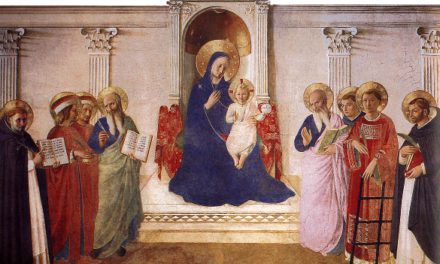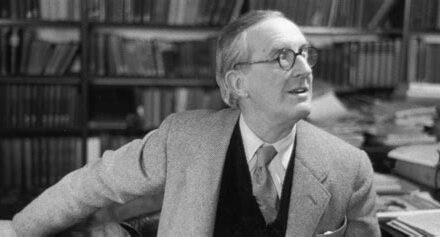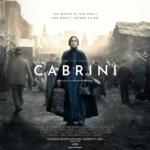It was supposed to be a meeting of 300, but over the course of a few weeks it burgeoned to over 1000 attendees. The setting was hardly intimate, but given the circumstances, the Evangelical organizers did a good job of making it worth our while. Donald Trump showed another side during the hour-plus question and answer session: The usual bravura was replaced by self-deprecating humor, a deeper seriousness, and a forthright affirmation of the Christian faith.
Two of those taking the stage before Trump, Franklin Graham and Jerry Falwell, Jr., took advantage of their time slots. They set the tone for an occasion to ponder the future of our nation if Hillary Clinton is elected president, with her two to five picks for the Supreme Court, her pro-abortion agenda, and her evident scorn for traditional Christians.
Trump picked up that thread in answer to one of the first of the questions posed by Gov. Mike Huckabee, calling religious liberty the “number one issue of the campaign.” He mentioned several times the list of 11 possible SCOTUS nominees already released, with the help of vetting from The Federalist Society and The Heritage Foundation, and promised the release of at least four more in the near future. Trump was emphatic when he said all his nominees would be “pro-life” and “similar to Justice Scalia.” Needless to say, the room frequently interrupted these comments with loud clapping and “Amens.”
There were some Catholics in evidence: Marjorie Dannenfelser, president of the SBA List, introduced Cong. Marsha Blackburn, who spoke about her House Planned Parenthood investigation, and author/speaker Eric Metaxas capped the event with a speech on the “new vision” for America. Other than those two, I counted a dozen or more around the room, such as Bill Donohue, president of the Catholic League; Lila Rose, president of Live Action; John Klink, former Vatican diplomat to the UN; Austin Ruse, president of C-FAM; Marjorie Murphy Campbell, blogger at www.newfeminism.com; Mary Beth Bonacci, president of Real Love, Inc.; Deacon Keith Fournier, blogger at www.thestream.org; and Brian Burch, president of CatholicVote.
To my ears, one of the most important themes in Trump’s answers was his reference to the hostility toward Christianity, alive in the culture but fostered by politicians like Hillary Clinton. He wants an America where it’s acceptable once again to say, “Merry Christmas,” and football coaches can say prayers with their teams before games.
The Christian voice is being thwarted by tax laws governing non-profits. Trump wants to eliminate the IRS gag rule on religious non-profits that, he says, keeps faith leaders from speaking out for fear of losing their tax exempt status. This fear, Trump said, is holding back the political power of conservative Christian voters, who, he believes, could be the most potent force in American politics.
He pledged to eliminate Obamacare, claiming that the upcoming hikes in insurance premiums and deductibles, if they are released on November 1, can change the election. But he warned the Obama administration is trying to have them pushed back to December 1 to avoid impacting voters.
He defended his position on immigration saying, “to have a nation you have to have borders” and underscored the deadly drugs, specifically heroin, coming over the Southern border without any interference from the Border Control who have been told to sit on their hands. He recently received the endorsement of 16,500 Border Control officers. Evidently those who are witnessing the scene at the border on a daily basis agree with Donald Trump. He added, “Building a wall is not a problem, the engineering issues are easily handled.”
It’s a pity this conversation with Donald Trump wasn’t broadcast to the nation. The voters would have seen a more relaxed Donald Trump, without his guard up to ward off an intensely hostile media waiting for any comment to spin against him.
Better still, the video recording of this conversation should be broadcast two or three days before the election in November, making the outcome of the election more certain.
Trump’s basic commitments — to life, religious freedom, a strong military, the repeal of Obamacare, securing our borders, bringing a new spirit of hope to our inner cities, protecting our second amendment — did not sound like the man who wrote The Art of the Deal. Rather, Donald Trump, among the Evangelicals, sounded like a man on a mission to recover America for future generations to come.














At this time I believe Trump is the right person for the country. It’s far to long since we have had a real leader to step up and discuss the problems we face. With truth and from the heart. Every fiber in my soul says he is this man. I believe in him. If he does half of what he says he can do in 4 years America will be great again. If it’s God’s will and blessings. Go and see this man’s past it’s out tbere. Good luck and God bless us all
It would sound great if he didn’t have such a long established pattern of lying.
Well, he certainly doesn’t have one that can compete with Hillary’s pattern.